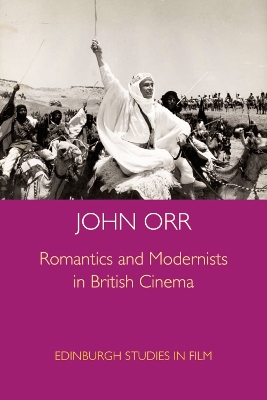Edinburgh Studies in Film
1 total work
In a fresh and invigorating look at British cinema that considers film as an art form among other arts, John Orr takes a critical look at the intriguing relationship between romanticism and modernism that has been much neglected in the study of UK cinema and downplayed in the development of Western cinema. Encompassing a broad selection of films, film-makers and debates, this book brings a fresh perspective to how scholars might understand and interrogate the major traditions that have shaped British cinema history. Covering the period between 1929 and the present, this book examines outstanding directors such as Alfred Hitchcock, David Lean, Carol Reed, Nicholas Roeg, Terence Davies and Bill Douglas, and articulates two genres vital to British cinema - the fugitive film and the trauma film - which bridge the gap between romantic and modern forms. Two detailed chapters also assess the powerful impact of major expatriate directors like Losey, Antonioni, Polanski, Kubrick and Skolimowski on modernism in the 1960s and 1970s.
Detailed critical readings explore Blackmail, The Lady Vanishes, Black Narcissus, Odd Man Out, The Passionate Friends, The Innocents, Lawrence of Arabia, The Servant, Blow-Up, A Clockwork Orange, Don't Look Now, The Wicker Man, Moonlighting, the Bill Douglas trilogy and The Long Day Closes. The book concludes with an analysis of the persistence of romantic and modernist forms in the 21st century in two recent prize-winning features, Control and Hunger.
Detailed critical readings explore Blackmail, The Lady Vanishes, Black Narcissus, Odd Man Out, The Passionate Friends, The Innocents, Lawrence of Arabia, The Servant, Blow-Up, A Clockwork Orange, Don't Look Now, The Wicker Man, Moonlighting, the Bill Douglas trilogy and The Long Day Closes. The book concludes with an analysis of the persistence of romantic and modernist forms in the 21st century in two recent prize-winning features, Control and Hunger.
